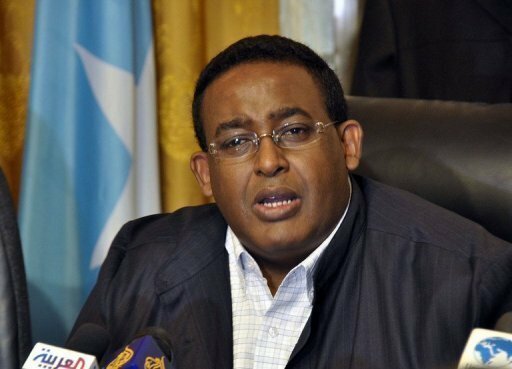 Bartamaha (Nairobi):- The UN special envoy for Somalia said Wednesday that simmering fueds had “crippled” the country’s government and appealed for unity a day after Prime Minister Omar Abdirashid Sharmarke quit.
Bartamaha (Nairobi):- The UN special envoy for Somalia said Wednesday that simmering fueds had “crippled” the country’s government and appealed for unity a day after Prime Minister Omar Abdirashid Sharmarke quit.
Sharmarke stepped down Tuesday following a protracted wrangle with President Sharif Sheikh Ahmed which prompted the UN envoy, representatives from the African Union and a sub-regional bloc to call for consensus.
The diplomat, Augustine Mahiga, said Sharmake’s exit “is yet another manifestation of the serious disputes” which has rattled the Horn of Africa country’s transitional institutions.
“The international community and the Somali people are looking to their leaders for unity, not recurrent political crises and there should be no excuses for stalling the peace process in Somalia.
“The Somali leadership must remain united and focused on its work,” Mahiga said.
He said he hoped the institutions on which the fragile administration is based “will now put an end to the internal divisions which have crippled the TFG?s (Transitional Federal Government) ability to carry out its essential tasks.”
Sharmake’s resignation came after weeks of intense attacks by hardline Shebab rebels bent on toppling the government, hanging by a lifeline in Mogadishu provided by a 7,200-strong African Union force.
Sharif had blamed the prime minister and his government for failing to root out the Shebab, an extremist militia which controls most of the country and has been closing in on the administration’s Mogadishu quarters.
The two leaders were also at odds over a new constitution to replace the interim charter when the TFG’s mandate comes to an end next year.
Sharif reportedly wanted the constitution be submitted to a popular referendum but Sharmarke said the security situation does not allow for a credible ballot and the document should be scrutinised by parliament.
The prime minister told reporters in Mogadishu he quit because he was “unable to work” with the president.
“There is less than a year to go until the end of the transitional period in August 2011 and there is a huge amount of work to be completed,” said Mahiga.
“Once again, I call on all those who support peace and security to demonstrate that they can work together in a cohesive manner.”
Sharmarke, 50, was endorsed as prime minister in February 2009, a month after Sharif — a former Islamist movement leader — was elected president. The two were seen as Somalia’s best chance for peace after 20 years of conflict.
Since its formation in neighbouring Kenya in 2004, the relationship between Somalia’s president and the prime minister in the TFG has been contentious, hampering the government’s efforts to stamp its authority nationwide.
Lawmakers tried to oust Sharmarke in a parliament vote in May, but he rejected the vote as unconstitutional and refused to resign.
Sharmarke’s predecessor, Nur Hassan Hussein “Adde”, also had his own feuds with former president Abdullahi Yusuf Ahmed.
Yusuf was also involved in a bitter political feud with Adde’s predecessor Mohamed Ali Gedi, who was forced to resign in 2007.
President Sharif was expected to pick one of three deputy prime ministers to fill in while he considers a long-term successor to Sharmarke and seek parliamentary approval.
————————————————
Source:-AFP.



